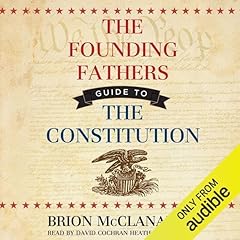
The Fugitive Slave Act of 1850
The History of the Controversial Law That Sparked the Confederacy's Secession and the Civil War
No se pudo agregar al carrito
Add to Cart failed.
Error al Agregar a Lista de Deseos.
Error al eliminar de la lista de deseos.
Error al añadir a tu biblioteca
Error al seguir el podcast
Error al dejar de seguir el podcast
 Exclusivo para miembros Prime: ¿Nuevo en Audible? Obtén 2 audiolibros gratis con tu prueba.
Exclusivo para miembros Prime: ¿Nuevo en Audible? Obtén 2 audiolibros gratis con tu prueba.Compra ahora por $9.76
-
Narrado por:
-
Scott Clem
Despite the attempt to settle America's slavery issue with the Missouri Compromise in 1820, the young nation kept pushing further westward, and with that more territory was acquired. After the Mexican-American War ended in 1848, the sectional crisis was brewing like never before, with California and the newly-acquired Mexican territory now ready to be organized into states. The country was once again left trying to figure out how to do it without offsetting the slave-free state balance that was already dividing the nation. With the new territory acquired in the Mexican-American War, pro and anti-slavery groups were at an impasse. The Whig Party, including a freshman Congressman named Abraham Lincoln, supported the Wilmot Proviso, which would have banned slavery in all territory acquired from Mexico, but the slave states would have none of it. Even after Texas was annexed as a slave state, the enormous new territory would doubtless contain many other new states, and the North hoped to limit slavery as much as possible in the new territories. The Compromise of 1850 was authored by the legendary Whig politician Henry Clay. In addition to admitting California to the Union as a free state to balance with Texas, it allowed Utah and New Mexico to decide the issue of slavery on the basis of what became known as "popular sovereignty", which meant the settlers could vote on whether their state should be a free state or slave state. Though a Whig proposed popular sovereignty in 1850, popular sovereignty as an idea would come to be championed by and associated with Democratic Illinois Senator Stephen Douglas.
©2016 Charles River Editors (P)2017 Charles River EditorsLos oyentes también disfrutaron:






















